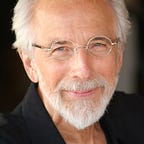Why It’s So Important to Know Your Own Mind
It always was and probably always will be evolving wisdom, aptitude and the clash of wills that inspire and guide humanity’s long journey from its brute state to the poetic light of the heavens. But we don’t get from that place where we were originally inserted and situated into a life of our own design without going through the changes. And no one can make them for us.
Fortunately, every step of the subjective designing and purposing, though perhaps challenging and time-consuming, is intellectually, emotionally and aesthetically rewarding. Pragmatically rewarding, too.
Let me tell you what I mean.
We often hear that the aim of the examined life is to substitute truth for myth, to try to provide explanations (for phenomena) that aren’t based on false cause. In this case, truth does not refer to an absolute. It refers to what is left when we eliminate the mistaken suppositions and errors in our thinking, listening, reading, writing, etc. It is not a final certainty because there is no place to stand outside the world and no vocabulary vast enough to describe all that was, is and will be. Indeed, there may never be a theory that reconciles the messy complexity of human issues into a neat simple truth.
And while there’s a great need to know your mind, it’s not neatly organized with all the deepest, wisest ideas at the top and the lesser ones ranked below. Add to that the mind’s off-and-on-again temptation to just keep going with the daily toil, with how you were already inserted into the world, with the march of programmed events.
So, in your encounter with this vast and complex land of ours, what is possible for you? What makes you tick? What excites your imagination? What wants doing and what needs doing?
There’s more. How do you make sense of:
- life’s ironies, contingencies and uncertainties;
- your own entangled and unpredictable emotions;
- inbuilt and exterior competing claims for what’s valuable and meaningful;
- what you ought to do and what you want to do?
How do you put to right the inescapable personal responsibility for choosing your outlook on the world, as well as your conduct in it, along with your compassionate comprehension that many people could not escape becoming what was done to them?
The existential and material privileges that have brought you to this opportunity — to stand apart from your conditioning and circumstance, to question, examine, reconsider, evaluate and commit — have not been available to everyone.
Along the same lines, what of your public obligations? Spiritual progress and social decency depend upon our capacity for self-determination, self-control and self-government. They also depend upon our ability to understand and to refer to the body of intelligence that supports morally, civilly and rationally qualified authority.
Seriously, there is so much to think about. But acquiring a relatively bigger picture by revealing holes in the myths (separating the fact of uncertainty from the myth of the absolute) and holes in the suppositions (the stuff we’re supposed to do) in favor of more pragmatic truths is an enlightening endeavor. And an effort both ennobling and humbling in light of its vastness.
This process is infused with feelings of joy, delight and good faith. Something almost magical seems to happen when we see a bigger picture and begin to take up an unreservedly creative, morally principled and unique, individual command of our subjectivity.
With this transformed realization of ourselves — when we know our own mind — we feel inspired, vibrantly alive and in command of the way in which we wish to live out our lives.
I’ve been teaching classes on autonomy and life for over 30 years. This coursework offers a philosophic perspective, vocabulary and strategies for acquiring a life of our own design. As an American Philosopher, this work stands firmly on America’s promise of freedom, justice and equality and the opportunity for not just living our life but for owning our life. More information is available on my website: autonomyandlife.com.
